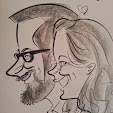This edition's guest editor was Salman Rushdie, who pared down the top 120 or so stories selected by Heidi Pitlor into just 20 stories. Unfortunately, that didn't make those 20 stories any better. Especially after a 2008 edition that had five or six truly amazing stories, with almost all the others impressing in one way or another, this one was pretty disappointing. There were several stories that definitely classified as “good”, but the majority of the collection was pretty head-scratch-inducing. “Missionaries” was stuffed full of awkward dialogue, unreasonable motives, and clumsy anti-religious sentiment, particularly against a specific religion. “The King of Sentences” was a horribly abstract mess with insane characters with no way for any normal reader to identify with them. Then there were the topical stories involving grad students, professors, poets, etc.--the typical incestuous nonsense that's killing the modern short story.
“The Year of Silence” was an interesting, albeit gimmicky story that was at least risky and entertaining. Another story was fairly ho-hum until a crazy twist ending occurred, which is not usually the stuff of High Literary Shorts. Alice Munro had a typically strong story in there, because, y'know, it wouldn't be the Best American Short Stories without throwing a Munro into it. Surprisingly, her story took place in Canada, and she used a first-person female narrator! Sarcasm aside, it also displayed some of her superb command of story, where things that don't seem to make much sense all come together in the end, making it a pretty strong, tight story. I also marked the anthology's final story as one worth re-reading, something by Tobias Wolff that read really well despite there being nothing really radical or noteworthy about it. I'm still trying to pinpoint why I liked that story, and it may just be that it was written really well.
The two stories that I was most impressed by, though, and make this anthology at least worth picking up off the shelf to read a select couple stories in your bookstore, were “Vampires in the Lemon Grove” and “Buying Lenin.” I was initially wary of “Vampires” because it seemed to be a gimmicky reincarnation of “St. Lucy's Home For Wolves,” which I wasn't a huge fan of. But the main character's dilemma was not only intriguing, but very humanizing and reflective of some of this life's most important conflicts—family, and death. You feel very powerfully for the guy and for his centuries' old relationship, and while it's no cut-and-dry parable of any sort, you get the feeling that you can learn a lot from the story, in a very odd, angular way.
“Buying Lenin” was, though, easily my favorite of the collection. Honest and humorous, and very tight. The characters felt very real, importantly so, and the structure of the story was brilliant. And not brilliant in a rocket-scientist-with-a-chalkboard way: brilliant in a “this is the only way this line should be written, and the only place it belongs is right here in this part of the story” way. Emotional intuition as a form of brilliance? I dunno. I just know that this story felt less pompous than anything else in the book, and more right.
In the end, this was a lackluster collection of short stories, and either Rushdie has vastly different aesthetics than I do, or he was wildly unambitious in selecting these stories.
2/4 stars
Subscribe to:
Post Comments (Atom)

No comments:
Post a Comment